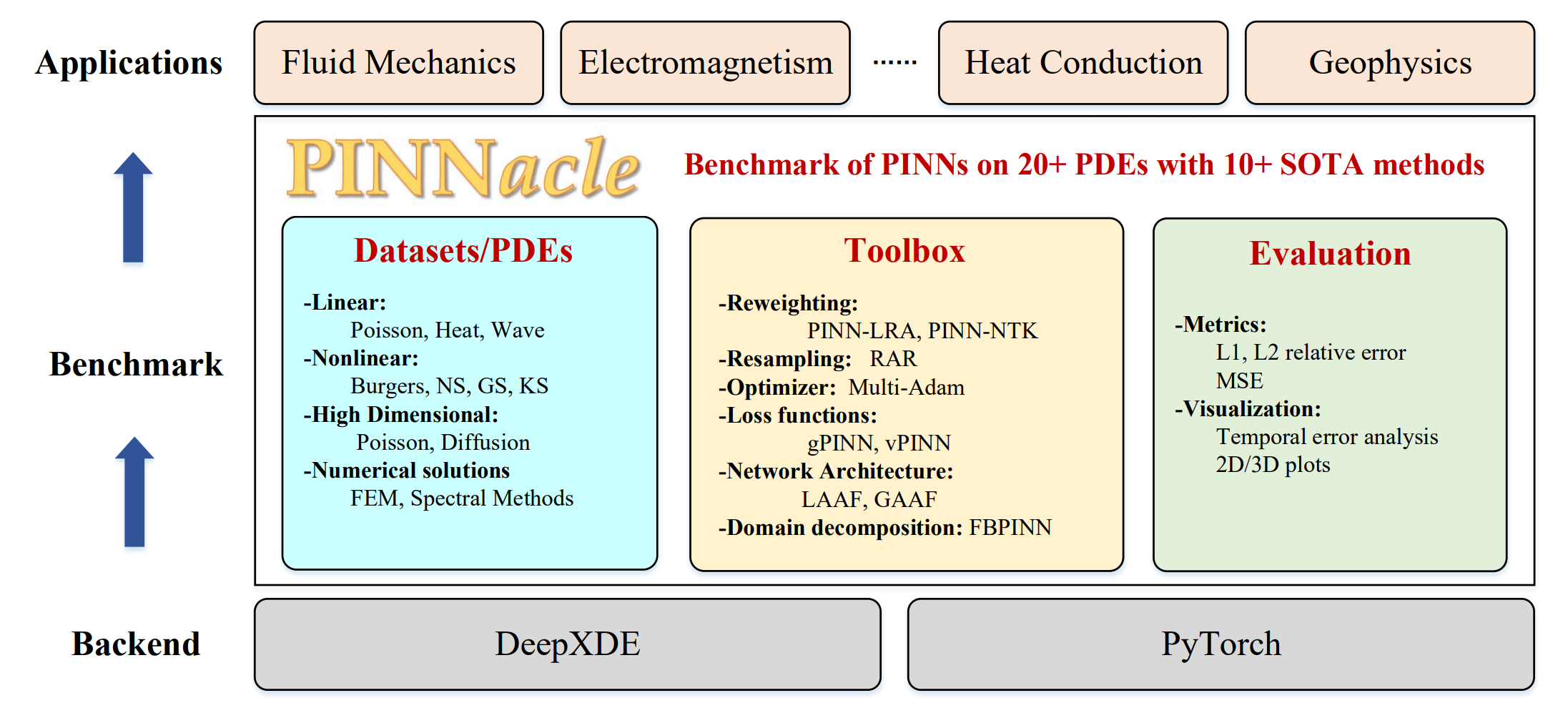Physics-Informed Machine Learning: A Survey on Problems, Methods and Applications
Recent advances of data-driven machine learning have revolutionized fields like computer vision, reinforcement learning, and many scientific and engineering domains. In many real-world and scientific problems, systems that generate data are governed by physical laws. Recent work shows that it provides potential benefits for machine learning models by incorporating the physical prior and collected data, which makes the intersection of machine learning and physics become a prevailing paradigm. By integrating the data and mathematical physics models seamlessly, it can guide the machine learning model towards solutions that are physically plausible, improving accuracy and efficiency even in uncertain and high-dimensional contexts. In this survey, we present this learning paradigm called Physics-Informed Machine Learning (PIML) which is to build a model that leverages empirical data and available physical prior knowledge to improve performance on a set of tasks that involve a physical mechanism. We systematically review the recent development of physics-informed machine learning from three perspectives of machine learning tasks, representation of physical prior, and methods for incorporating physical prior. We also propose several important open research problems based on the current trends in the field. We argue that encoding different forms of physical prior into model architectures, optimizers, inference algorithms, and significant domain-specific applications like inverse engineering design and robotic control is far from being fully explored in the field of physics-informed machine learning. We believe that the interdisciplinary research of physics-informed machine learning will significantly propel research progress, foster the creation of more effective machine learning models, and also offer invaluable assistance in addressing long-standing problems in related disciplines.
PDF Abstract

